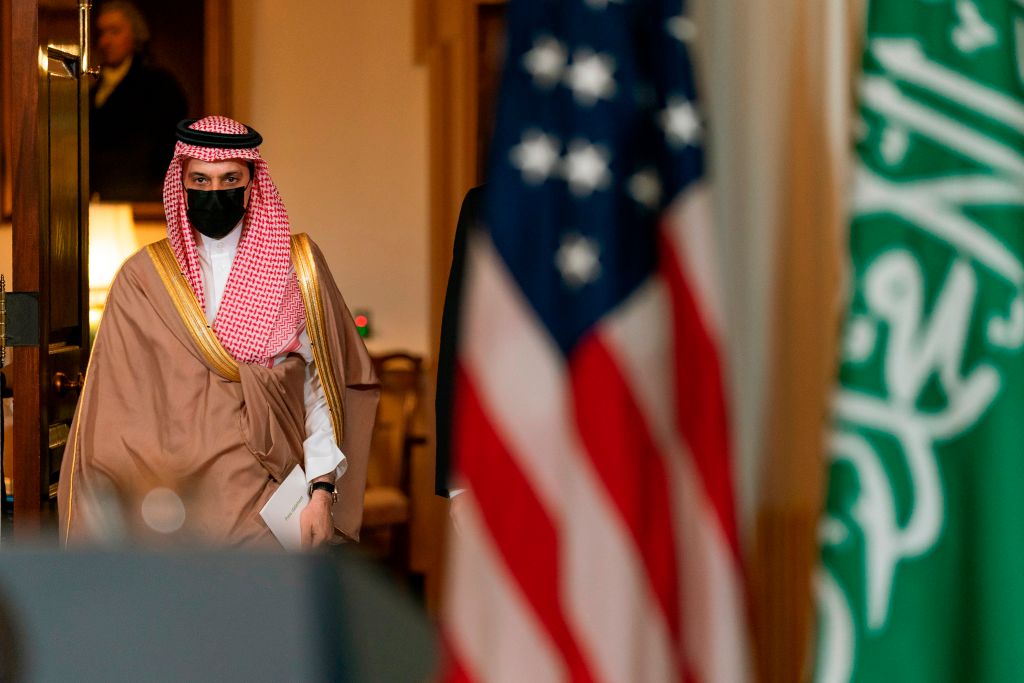How the US can counter China’s Middle East influence

When US President Joe Biden visits the Middle East next month, his hosts—in particular, Saudi Arabia—will probably try to persuade him to re-engage with the region. Far from enabling the United States to focus on strengthening its position in the great-power competition with China and Russia, they might argue, strategic disengagement from the Middle East gives China an opening to bolster its own regional influence. But the reality isn’t that simple.
As a major fossil-fuel producer, the Middle East is clearly important to the US. In fact, it is sky-high energy prices that have forced Biden to try to patch up his relationship with Saudi Arabia. Until recently, Biden was shunning Crown Prince Mohammed bin Salman, the country’s de facto ruler, over his alleged role in the murder of Saudi journalist Jamal Khashoggi in Turkey in 2018.
Biden’s about-face highlights the extent of Saudi Arabia’s leverage. And the Saudis are likely to use that leverage to urge the US to sustain its military engagement in the Middle East. Warnings (which Israel is likely to echo) that China will quickly move to fill any security vacuum left by the US will seem to bolster their case further.
But China is unlikely to establish a military footprint in the Middle East, not least because its key partners in the region—Egypt, Iran, Iraq, Israel, Saudi Arabia and the United Arab Emirates—are adversaries of one another. While Iran and Saudi Arabia, for example, are willing to do business with the same actors, neither would maintain good relations with a country that was cultivating a substantial security relationship with its main rival.
China’s hesitation to advance its security interests in the Middle East suggests that it is well aware of this. Even in the case of Iran, which could serve as a proxy in China’s strategic rivalry with the US, China has avoided steps that could jeopardise its relations with Saudi Arabia and the other Gulf states. For example, unlike Russia, it has refrained from providing advanced weapons to Iran.
Even if China had more room to manoeuvre strategically in the Middle East, it might not significantly expand its strategic footprint there, because it doesn’t view the region as critical to its security. While the Middle East accounts for nearly half of China’s oil imports, the most important theatre in the unfolding US–China cold war is East and Southeast Asia. China doesn’t want to expend limited resources in the Middle East any more than the US does.
Against this background, China is likely to continue relying on diplomatic and economic tools to expand its influence in the Middle East. The only way to counter these efforts, it seems clear, is for the US to raise its diplomatic and economic game.
That means, first and foremost, abandoning the effort to frame America’s strategic competition with China and Russia as an ideological contest between democracy and autocracy. After all, the vast majority of Middle Eastern countries are autocracies. The last thing the US needs is to alienate them with an overtly ideological foreign policy that enables China to portray itself as a more reliable, supportive and like-minded partner.
Economic engagement remains China’s most effective tool for expanding its geopolitical influence. In 2020, merchandise trade between China and the Middle East totalled US$272 billion. Though comparable figures aren’t available for America’s trade with the Middle East as a whole, the trajectory of the two powers’ trade with Saudi Arabia is revealing. While America’s trade turnover with Saudi Arabia rose only moderately between 2000 and 2021—from US$20.5 billion to US$24.8 billion—China’s soared, from US$3 billion to US$67 billion.
On technology, the US may be giving China yet another opening. The West has long used sanctions as a tool for punishing ‘rogue’ countries, with Iran as a case in point. But the comprehensive technological and financial sanctions imposed on Russia over the war in Ukraine have compounded fears in Middle Eastern countries that they, too, might be targeted.
As China builds up its technological and innovative capacity, it can present itself as a more reliable source of technology and a safer investment destination. It is telling that no Middle Eastern country has banned the Chinese telecom giant Huawei’s 5G networks, despite strong American lobbying.
While the case for a new Middle East strategy focused on diplomatic and economic engagement is strong, any attempt by Biden to implement one will meet significant resistance. Befriending dictators will lead to charges of hypocrisy—the last thing Biden needs months before midterm elections in which his Democratic Party is unlikely to perform well—and protectionist sentiment remains strong in the US. But if Biden frames the shift as part of a larger strategy for winning the new cold war with China, he might have a chance.